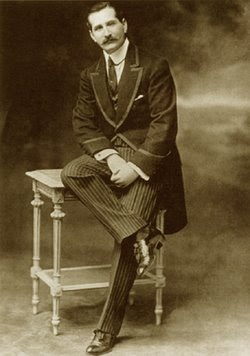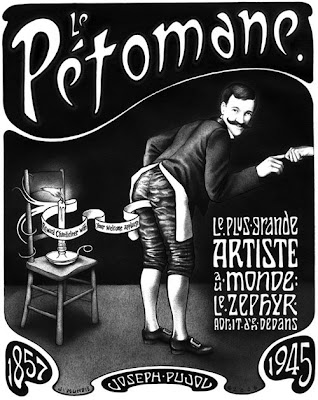*The Limbic System encompasses structures that are critical for forming memories and experiencing pleasure, as well as for various motivational and emotional activities. In evolutionary terms, the limbic system is more recent than the central core and is fully developed only in mammals. The limbic system includes the hippocampus and amygdala, as well as other structures. It appears to play a central role in times of stress.
In one sense the findings appear to confirm what is already known, that women cannot enjoy sex unless they are relaxed and free from worries and distractions. "Fear and anxiety levels have to go down for orgasm. From an evolutionary point of view, it could be that the brain switches off the emotions during sex because at such times the chance to produce offspring becomes more important than the survival risk to the individual. Gert Holstege of the University of Groningen in the Netherlands points to the extraordinary behavior seen in some animals during the breeding season, such as March hares, when the urge to mate seems to override the usual fear of predators. "At the moment of orgasm, women do not have any emotional feelings," says Gert.
The most important factor in falling in - and out - of love is dopamine. Dopamine is the neurochemical that activates your reward circuitry. The reward circuit or reward center or reward system is a small portion of the limbic system, but it drives nearly all of your behaviors.
This center is activated when you engage in activities that further your survival, or the continuation of your genes. Whether it’s sex, eating, taking risks, achieving goals, or drinking water, all increase dopamine, and dopamine turns on your reward circuit. You can think of dopamine as the "I’ve got to have it" neurochemical, whatever "it" is. It’s the "craving" neurochemical. The more dopamine you release and the more your reward circuit is activated, the more "reward" you experience. A good example is food. We get a much bigger blast of dopamine eating high-calorie foods than we do low-calorie foods. It’s why we choose chocolate cake over Brussels sprouts. Our reward circuit is programmed so that "calories equal survival." You’re not actually craving ice cream, or a winning lotto ticket, or even a romp in the sack. You’re craving the dopamine that is released with these activities. Dopamine is your major motivation, not the item or activity. Addiction mechanisms are complex, yet the one aspect they share is dopamine. All addictive drugs and all addictions increase dopamine; that is why they are addictive. Porn, accumulating money, gaining power over others, gambling, compulsive shopping, video games…if something really boosts your dopamine, then it’s potentially addictive for you. Why did Martha Stewart risk everything for more money? She got a thrill from a stock market gamble, and that gave her more dopamine. She didn’t need the money.
Orgasms and addictions have two things in common. They both produce an initial pleasurable experience, and both are followed by an unpleasant hangover. The sexual satiation (orgasm) hangover is innate. It can be such a subtle part of you that you do not connect the dots - unless you switch to making love without it for several weeks, and then go back to sex with orgasm. "What goes up must come down." It’s simple biology; body systems must return to balance, or homeostasis. What goes up and down in this case is your dopamine. That can play havoc with your mood and the way in which you perceive, and treat, your partner. At orgasm, dopamine drops like a lead balloon, and we lose interest, at least temporarily. However, if dopamine’s not kept in check, it could rapidly shoot up again and we’d be back in the sack. Biology’s mission is now to stop us from screwing around and place our attention elsewhere - like on hunting and gathering, feeding the babies, going to our job, taking out the trash and so forth.
Suppressing dopamine is so important that nature uses an additional neurochemical to curtail our sexual desire. It’s called prolactin. If dopamine is the "foot on the gas," then prolactin is the "foot on the brake." Although research hasn’t shown how long prolactin surges continue in humans after sex, in female rats, twice daily surges of prolactin continue for up to two weeks. This may help to explain how great sex last week could lead to relationship friction now. And it’s no wonder we don’t make the link between cause and effect.
To summarize thus far, orgasm leads to a drop in dopamine and a rise in prolactin. Both of these lead to multiple behavioral and emotional symptoms, which, in our experience, can arise over the next two weeks. During this time, behavior may change for the worse. More importantly, lovers' perception of each other can shift dramatically for the worse. If we feel depleted, our partner will seem overly demanding; if we feel needy, our partner will seem selfish and uncaring. Bickering and emotional separation then lead to further friction. Of course, few people ever avoid orgasm for two weeks. Most of us ride this roller coaster over and over, never really experiencing balanced brain chemistry - or the easy harmony that accompanies it.
Orgasm’s high dopamine/low dopamine pattern actually encourages addictions of many kinds because people attempt to use artificial means to manipulate their dopamine levels. Think about it. Most addictions kick in during teen years, when we become sexually active. A recent Columbia University study found that sexually active teens use more drugs. One might think social factors alone lead to this correlation between drugs and sex, but when scientists studied hamsters, they found that sexually-active hamsters were much more susceptible to amphetamine addiction than their virgin counterparts. This research brings us to another observation. Children, or pre-teens have yet to activate this dopamine roller coaster, and they possess a cheerful, optimistic enthusiasm for the simplest activities. Perhaps this is due to balanced dopamine.
Falling in love is associated with a soup of neurochemicals - like adrenaline, which makes your heart race, and, as we have mentioned, dopamine, which makes you crave your beloved. But the heartwarming, loving, "gushy" aspects of love are due to oxytocin. It is the "unconditional love" hormone associated with nurturing and generous affection. Oxytocin's main evolutionary function is to bond us to our children for life. It also serves to bond us to our mate…at least long enough to produce a child and (if we're lucky) get it on its feet.
Friendships are also built on oxytocin, and can be quite deep bonds. If scientists block either oxytocin or dopamine, mothers will ignore their pups. As sexual satiation plays havoc with dopamine, lovers can end up with negative effect on their precious emotional bonds. Low dopamine alone interferes with feelings of love, and it may reduce oxytocin levels or the brain's sensitivity to oxytocin. As things go sour, something interferes with oxytocin's bonding effects. It's likely that it's low dopamine.
The good news is that making love while avoiding sexual satiation is the loophole in biology’s plan for our love lives. This is the secret that the ancient sacred-sexuality sages stumbled upon. Making love with lots of affection, without the dopamine-driven highs and lows of conventional sex, seems to keep neurochemical levels balanced. The more oxytocin you produce, the more receptive you are to it. This is the opposite of dopamine. Addicts need more and more of a drug, which, of course, actually means they need more and more dopamine. Luckily you don’t need an ever-increasing "fix" of oxytocin to maintain the same gushy feeling. In fact, your partner just looks better and better - at least to you. This is why this practice can strengthen your bond with your mate.
This quality of oxytocin explains why companionship can increase longevity - even among those who are HIV positive. Or speed recovery: wounded hamsters heal twice as fast when they are paired with a sibling, rather than left in isolation. It may also explain why, among various species of primates, care-giving parents (whether male or female) live significantly longer. Oxytocin increases sexual receptivity and counteracts impotence, which may be one reason why this other way of making love remains pleasurable. Again, notice that oxytocin reduces cravings and increases sexual receptivity. This allows making love without orgasm to be surprisingly satisfying. The affection is always there, flowing between you and your partner. When we tiptoe around dopamine’s highs and lows, we encourage balance and clear perception of each other. We see each other as sources of safety and pleasure, not as sources of stress. The real magic of love happens at a neurochemical level - and we can choose balance in order to foil the extremes of Mother Nature's plan. Sex is only an addiction when it causes problems similar to those found in any other type of addiction, whether it be gambling, drugs, skydiving, etc. For example, if the desire to have sex takes up so much time that you don't do things you have to do - you get fired from your job, you neglect the kids, etc. It also may be an addiction if you have sex in risky ways (unprotected, in semi-public areas) that you KNOW are harmful but do anyway. "An addiction is a recurring compulsion to engage in some specific activity, despite harmful consequences to the individual's health, mental state or social life. The term is often reserved for drug, alcohol and nicotine addictions but is also applied to other compulsions such as compulsive overeating or sex with orgasm. "
As per Wikipedia:
*Prolactin (PRL) or Luteotropic hormone (LTH) is a peptide hormone discovered by Dr. Henry Friesen, primarily associated with lactation. In breastfeeding, the act of an infant suckling the nipple stimulates the production of prolactin, which fills the breast with milk via a process called lactogenesis, in preparation for the next feed. Oxytocin, another hormone, is also released, which triggers milk let-down.
**Oxytocin (sold as Pitocin, Syntocinon) is a mammalian hormone that also acts as a neurotransmitter in the brain.It is best known for its roles in female reproduction: it is released in large amounts after distension of the cervix and vagina during labor, and after stimulation of the nipples, facilitating birth and breastfeeding, respectively. Recent studies have begun to investigate oxytocin's role in various behaviors, including orgasm, social recognition, pair bonding, anxiety, trust, love, and maternal behaviors.
***Dopamine is a neurotransmitter occurring in a wide variety of animals, including both vertebrates and invertebrates. In the brain, this phenethylamine functions as a neurotransmitter, activating the five types of dopamine receptors — D1, D2, D3, D4, and D5, and their variants. Dopamine is produced in several areas of the brain, including the substantia nigra and the ventral tegmental area.[1] Dopamine is also a neurohormone released by the hypothalamus. Its main function as a hormone is to inhibit the release of prolactin from the anterior lobe of the pituitary.Dopamine can be supplied as a medication that acts on the sympathetic nervous system, producing effects such as increased heart rate and blood pressure. However, because dopamine cannot cross the blood-brain barrier, dopamine given as a drug does not directly affect the central nervous system. To increase the amount of dopamine in the brains of patients with diseases such as Parkinson's disease and dopa-responsive dystonia, L-DOPA, which is the precursor of dopamine, can be given because it can cross the blood-brain barrier.
















